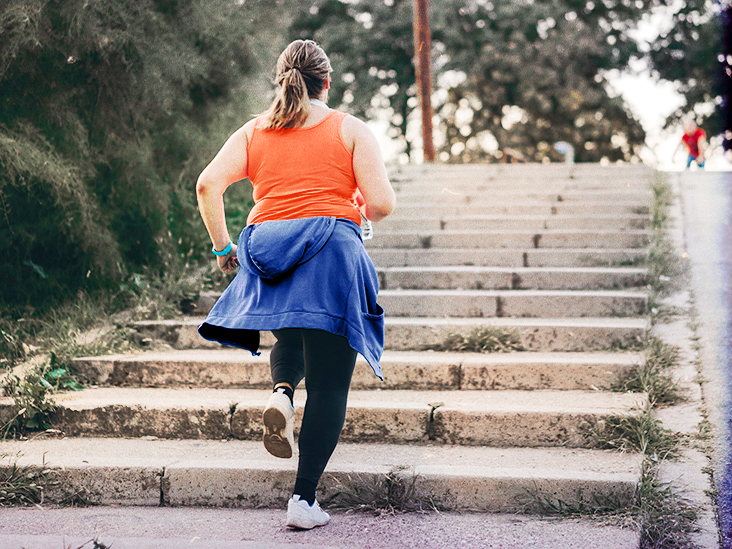There are many ways to treat anxiety without medication, from various types of therapy to dietary and lifestyle factors.
Anxiety is one of the most common mental health challenges.
Anxiety treatment without medication can and does work. It is important for people to work with a knowledgeable provider and discuss their specific concerns about medication.
Keep reading to learn more about treating anxiety without medication, including through psychotherapy, diet, alternative therapies, and more.
Exercise can help manage symptoms of anxiety and, in some people, may even be a substitute for other types of treatment.
A 2018 systematic review and meta-analysis found that aerobic exercise — especially high-intensity exercise — could be particularly beneficial.
However, the authors of that study caution that the wide variability in types of exercise included in the review and the small sample sizes of many studies limits the data. Scientists must continue their research to prove conclusively that exercise is an effective treatment for anxiety.
Learn more about the physical and mental health benefits of exercise here.
Psychotherapy is a highly effective intervention for anxiety. In fact, the American Psychological Association emphasizes that therapy is typically more effective than medication. This is because psychotherapy gives a person the chance to talk about their anxiety, explore coping mechanisms, and work through experiences that contribute to their anxiety.
Learn more about different types of therapy here.
Some people find that changing their diet helps reduce anxiety. Options to consider include:
Many foods may also contain nutrients that could help reduce symptoms of anxiety.
Learn more about them here.
Anxiety can be very isolating.
Support groups come in many forms, such as anonymous online message boards, in-person meetings, and virtual sessions. Some therapists also facilitate support groups. A person should consider their schedule, comfort level, and goals when deciding which type of support group to try.
People with anxiety need support from loved ones. Education about anxiety may help families better support children and other loved ones.
Educational and workplace accommodations may also help. They can prevent anxiety from causing additional stress, such as from the loss of a job or a failing grade.
Some people find that complementary and alternative treatments, such as massage, acupuncture, or chiropractic care, help their anxiety symptoms. A 2018 systematic review of 13 mostly small studies suggests that both acupuncture and electro-acupuncture may ease anxiety.
While some studies report promising results, there is no conclusive data showing these treatments work. So people trying alternative remedies should use them as a complement to other treatments, not substitutes for care.
Other alternative therapies may also have some benefits in treating anxiety.
Learn more about herbs for anxiety here.
Transcranial magnetic stimulation (TMS) is a newer anxiety treatment that uses magnets to create a weak electrical current in the brain.
This current may stimulate the release of neurotransmitters that relieve anxiety or change how the brain processes anxiety. Doctors are not totally sure how it works.
A
Various stress relief techniques may help ease anxiety. The right approach depends on the person and the type of anxiety. For example, people who feel anxiety about work may find that the right organizational system relieves their fear of missing a deadline, while people who feel anxious while home alone at night might invest in an alarm system or get a dog.
Some strategies that can work for different types of stress and anxiety include:
Learn more about relaxation techniques here.
Most people experience anxiety from time to time. When a person has anxiety so intense that it undermines sleep, daily functioning, or relationships, it is time to seek help. This type of anxiety is a medical condition. And while medication is an option, it is not the only treatment.
A doctor can help with getting the correct diagnosis, ruling out physical health issues, and finding therapy and other remedies.
A person should contact a doctor or healthcare provider if they experience the following:
Anxiety can feel physically and emotionally exhausting.
It may cause conflict in relationships, make work and school more difficult, and trigger chronic feelings of fear and isolation.
Anxiety is treatable without medication using the right combination of lifestyle changes, therapies, and support.
If a person is concerned about their anxiety, they should reach out to a mental health professional or doctor and not delay care.
Last medically reviewed on April 14, 2021
Anxiety is a normal emotion that causes increased alertness, fear, and physical signs, such as a rapid heart rate. However, when anxiety reactions…
Cannabidiol (CBD) is one of several cannabinoids found in the Cannabis sativa plant. It is a non-psychoactive compound that may help to treat anxiety.
While some people with anxiety tend to overeat, others have little or no appetite. Learn more about the link between anxiety and appetite loss here.
Food plays a vital role in nutrition and keeping the mind in its healthiest state. People respond in a variety of ways to different foods, but there…
OUR BRANDS
